Life on the Kinabatanga River – Abai Homestay
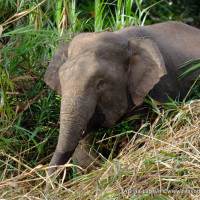
“He’ll pick you up from the ‘central’ market” . A rather vague rendezvous with a guide from Abai Homestay. Fortuitously close to our hotel, but the market was quite large, and smelt strongly of the morning fish catch.
Unable to find the guide I trudged back to the hotel to phone, my Vietnamese phone card not much use in Borneo. Fresh instructions; by the craft entrance. I stood out like a sore thumb in the hubbub of locals and it was Bob, the guide, who spotted me on my return.
Though his face dropped when he saw the size of our bags. As did ours when we noticed the size of the small boat he had to load two western women into, along side village supplies. Shoehorned in we headed out across the bay to the Kinabatanga River and Abai village.
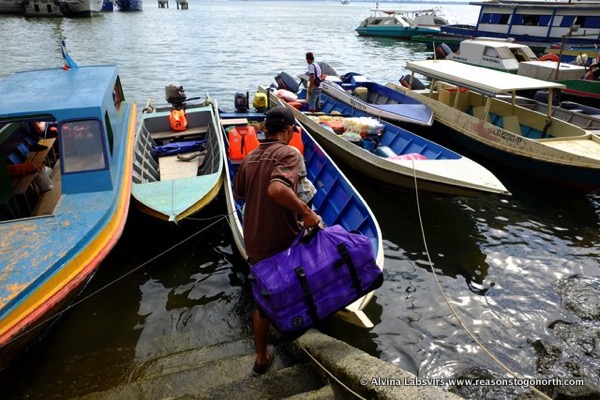
Abai is a village of about 40 houses, 100 people, on the mouth of the Kinabatanga River. When the surrounding forest was made into a conservation area villagers needed to find a source of income rather than logging. So with help from NGOs they set up C.A.P. Community Abai Project The project vision is “To Protect Forest and Wildlife, Harness and Build Capacity among the People and to Generate Sustainable Income through Sustainable Eco-Tourism Activities” Accommodation, in local houses to educate and inform visitors is part of this project. We were their guests for two nights.
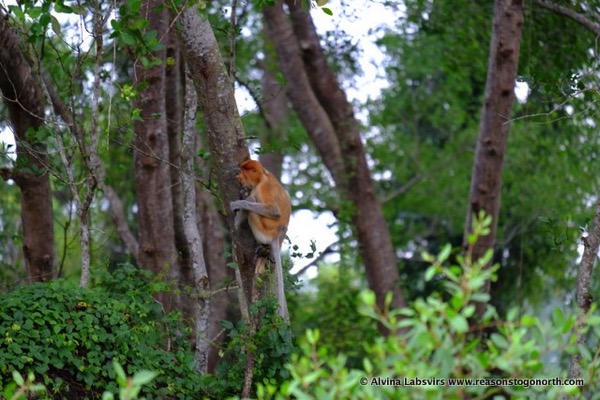
Proboscis Monkey
With no road to the village 30 kilometres of beautiful boat ride is the only way to the village. Monitor lizards slid silently into the water, proboscis monkeys chattered and played alongside while egrets, eagles, kites and cranes swooped their aerial display, life dropped down a step or two from its usual frenetic pace.
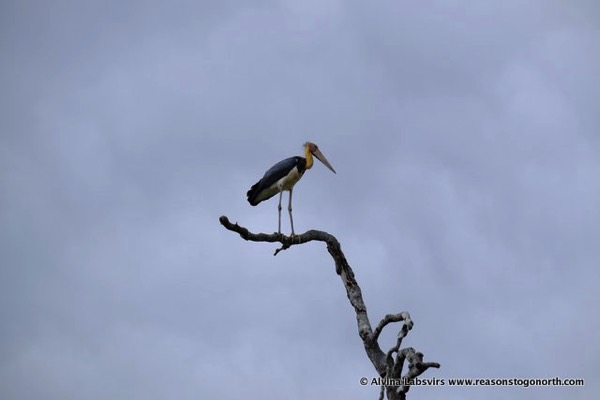
Storm Crane
The house on stilts, was simple and spotlessly clean. Ventilation through open windows and gaps in the wood. We stayed with Farsi and her family. Farsi and other villagers had learned English from an Australian volunteer who stayed in the village for three months to assist with the project.
Lunch arrived almost as we dropped out bags. Rice, prawns, omelette and cucumber. Standard fare for three meals a day. Vegetables, cucumber, tomatoes and aubergine are all grown in small village plots. Everything as fresh as it is possible to be, cooked almost as we waited.

Fresh river prawns
Bathroom facilities are, as meals, shared with the family. The rather tenuous rainwater plumbing heated as the sun’s rays decided, while it sat in large blue collecting tanks. Electricity clicks in with the generator from 6 till midnight. You won’t find wifi but you can charge your devices, and every villager appeared to have a phone.

Village shop with standard blue rainwater collectors
Fitting into animal routine, ‘safaris’ are organised early morning, late afternoon and after dark. Our village guide, Bob, had eyes like a hawk and pointed out birds and monkeys which eluded us. His handy ‘bird bible’ of the area meant we were soon writing down names like the most enthusiastic twitchers.
From eagles to kingfishers, the range of size, colour and species is almost overwhelming. Along with proboscis monkeys, civet monkeys and long tailed maquette played and stared haughty down as we chugged by. We did not see the great man of the forest, orang-utan here, but we did see a nest, evidence they are still around.
Night safaris and thousands of fireflies lit the trees. The air reverberated with the strange calls of nightbirds, amphibians and insects. Eyes of crocodiles stared unflinchingly back at the torchlight and wise boobook owl refused to be disturbed.
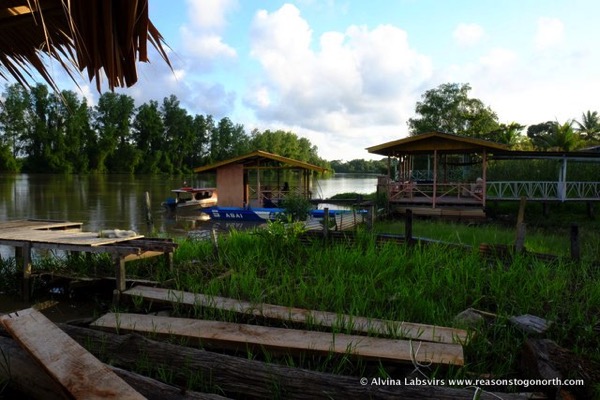
Little more than water hyacinth and dead trees disturbed the wide laconic river. An occasional fisherman or the fuel supply barge for village boats and generators

Fisherman
Village boats are handmade, some as small as a kayak. Painted elaborately, either paddled or engine driven. On high days and holidays they race along the river.

Day begins with dawn, so lunch is early 11.30. Washed down with coconut water picked fresh from the trees. Early afternoons rest time. The wide, airy balcony perfect for relaxing and reading, until school broke out and limbs were commanded into badminton. The hazards of living with a family who had a son of eight. Children go to the village school for primary school but then go to Sandakan.
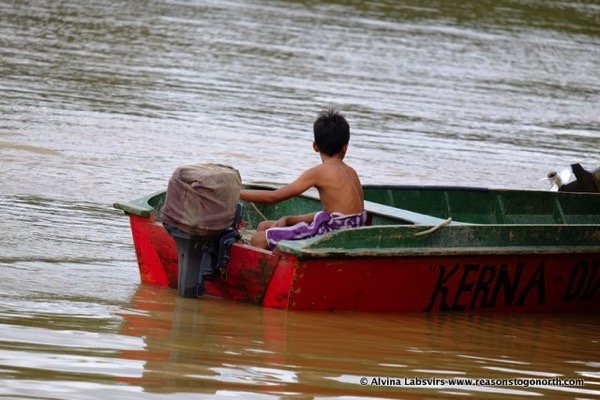
Young drivers
Rest time over and ‘activities’ follow. I can now add ‘making prawn traps’ to my skill set. With my surprisingly proficient wheeling of a seriously large, at least 20cm, needle to blanket-stitch rice sacks on a bamboo frame.
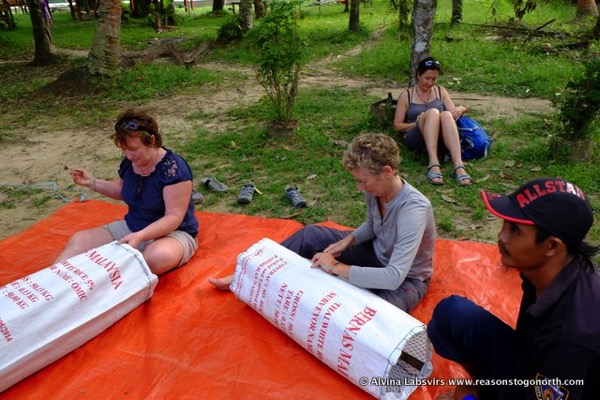
Learning new skills!
Enterprising as they are the villagers use every resource they have available. That includes stray English teachers. And I found myself giving an English class for some of the villagers. It was a good opportunity to give a little back and to find out about life in the village.

English class
Mainly the women who work on the eco project, the men still fish and build boats. Some are hosts, others cook, others plant and nurture trees for reforestation, something homestay visitors are involved in. From the six women in my ‘class’, all bar one had left school and been married by 16 or 17. By their late 20s having four or five children. But with changing times none of them wanted the same for their daughters.
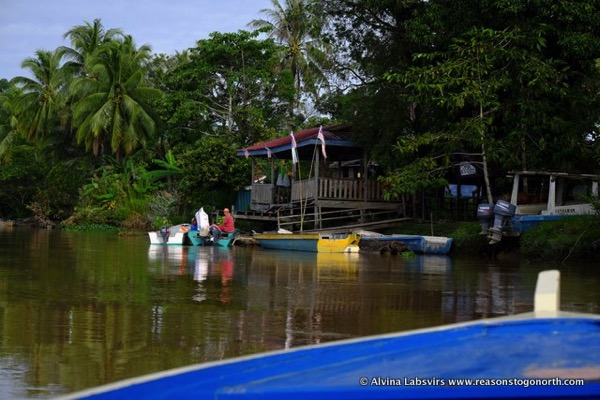
Abai village project is a fantastic example of empowering a community to help themselves to enrich the quality of their lives within a sustainable framework. By visiting as a tourist you can help fund their project. I enjoyed every second I was there with wonderful, friendly people, in a beautiful part of the world. Please, if you are in Borneo, go visit, and you may even see the elephants, as we did.
Our trip organised by Sticky Rice Travel, but you can go direct to the project website and book.


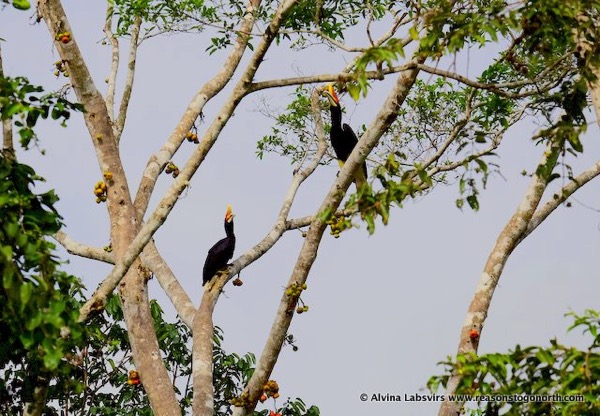
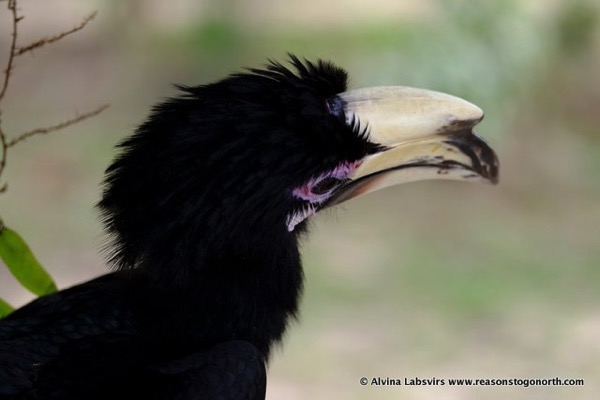

Hi Alvina,
It is very nice of you to write about us. I will share this with with the villagers. Am pretty sure Bob and Fauziah would love it. Do send my regards to your friend Caroline.
Warm regards,
Siti